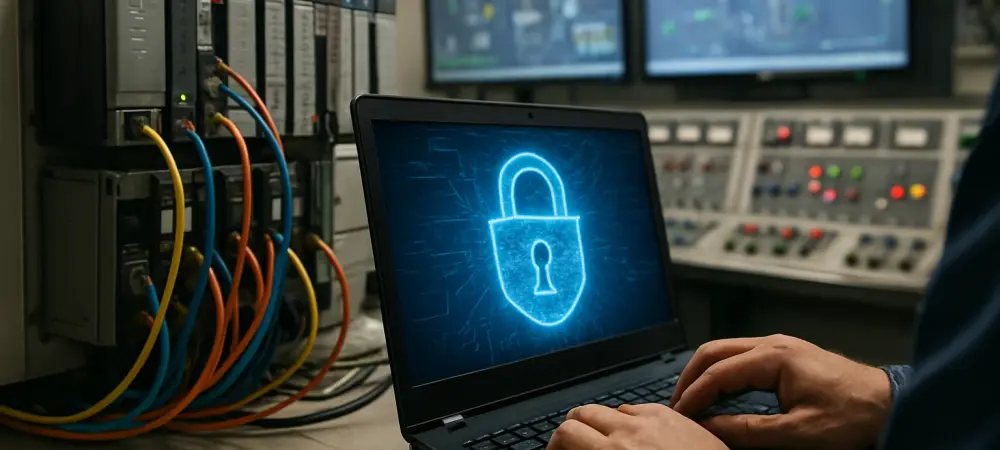In today’s increasingly digital world, cybersecurity remains a paramount concern, especially when it comes to critical infrastructure systems. Dominic Jainy, a seasoned IT professional with a strong focus on artificial intelligence, machine learning, and blockchain, sheds light on the recent advisories issued by the Cybersecurity and Infrastructure Security Agency (CISA) regarding vulnerabilities in industrial control systems (ICS) and shares insights on the importance of cookie policies in digital environments.
What recent advisories has CISA issued regarding critical ICS vulnerabilities?
CISA has recently issued advisories that highlight significant vulnerabilities within industrial control systems, which are essential for managing crucial infrastructure. These advisories stress the importance of addressing both software and hardware weaknesses that could potentially be exploited by cyber threats.
Can you explain what ICS vulnerabilities are and why they are considered critical?
Vulnerabilities within industrial control systems are critical because these systems underpin the operation of essential services like electricity, water, and transportation. A breach in these systems can lead to severe disruptions, posing risks not just to the infrastructure but to public safety and economic stability as well.
How do these vulnerabilities impact multiple sectors?
ICS vulnerabilities impact a wide array of sectors since many industries rely on these systems for their day-to-day operations. From manufacturing to energy, a security flaw can cascade through interconnected networks, potentially leading to widespread disruptions in service delivery.
What measures can organizations take to protect themselves from these ICS vulnerabilities?
Organizations can enhance protection by implementing regular security audits, employing robust firewall systems, updating software consistently, and ensuring that staff are trained to recognize and respond to potential threats. Collaboration with cybersecurity experts to develop tailored defense strategies is also vital.
What role does CISA play in addressing cybersecurity issues across different sectors?
CISA functions as a central coordinating body that offers guidance, resources, and support to various sectors to bolster their cyber defenses. They disseminate crucial information about threats and vulnerabilities and provide frameworks for risk management and mitigation strategies.
Could you describe the types of cookies mentioned in the Cookie Preference Centre?
There are several types of cookies outlined in the Cookie Preference Centre, each with its distinct function. These include strictly necessary cookies, performance cookies, functional cookies, and targeting cookies. Each type plays a role in how a website operates and interacts with its users.
Why might some users choose to block certain types of cookies, and what impact could this have on their experience of the website?
Some users might block cookies due to privacy concerns or to prevent websites from tracking their online behavior. This can lead to a less personalized browsing experience, with some features or services potentially not functioning as intended. However, it can offer enhanced privacy in exchange.
What are strictly necessary cookies, and why can’t they be switched off?
Strictly necessary cookies are essential for the basic functionality of websites. They facilitate user actions like logging in and setting privacy preferences. Blocking these cookies might impair fundamental site operations, making them indispensable for service requests.
How do performance cookies contribute to a website’s functionality?
Performance cookies gather data on user interactions with the website, helping to improve service delivery and resource allocation. They aid in identifying popular pages and tracking site navigation, ultimately contributing to a better user experience by optimizing website performance.
What functionalities do functional cookies enable on websites?
Functional cookies allow websites to offer enhanced features such as personalized settings and tailored content. They ensure that users have a smoother and more engaging experience by enabling customization according to individual preferences and past interactions.
How is user privacy impacted by targeting cookies, and what are the potential implications for targeted advertising?
Targeting cookies can affect privacy as they track user behavior to serve adverts tailored to their interests. While they facilitate relevant advertising, they also raise concerns about the degree of personal data collection, leading to broader discussions on consent and data usage.
What are the default settings in the Cookie Preference Centre, and how can users change them?
The default settings often allow many cookies to enhance user experience and service delivery. Users can customize these settings through the preference center, opting out of certain cookies to align with personal privacy standards or to optimize performance according to their needs.
What is your forecast for cybersecurity trends, particularly regarding ICS vulnerabilities?
Looking ahead, the complexity and interconnectivity of infrastructure systems will continue to be a focal point for cybersecurity measures. Innovations in AI and machine learning may offer new defenses, yet the evolution of threats calls for constant vigilance and adaptation of strategies to safeguard these critical systems effectively.

